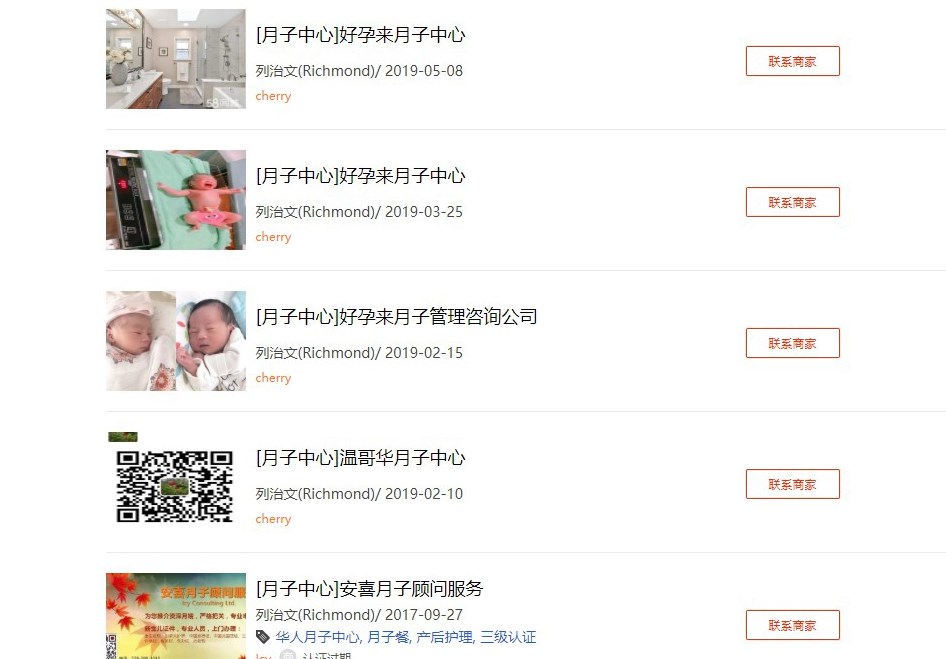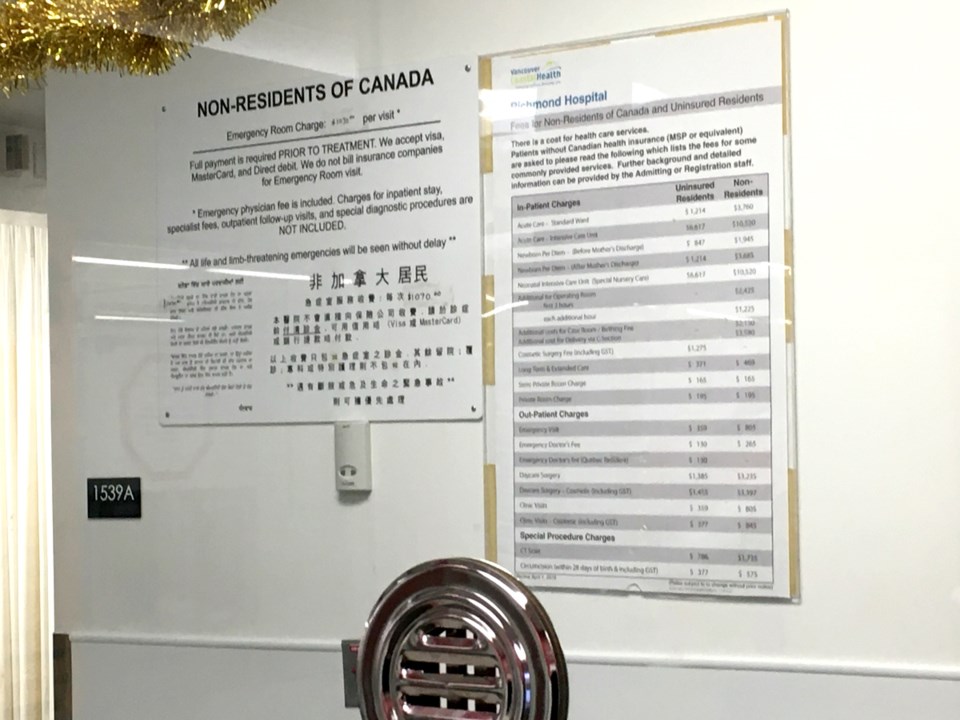Recent media attention has brought Richmond into the limelight as the “epicentre” of birth tourism, with an exposé on the CBC’s Fifth Estate over the weekend.
But birth tourism has been an on-going issue in the Richmond community for years, with local politicians and residents pushing for changes to the law of “jus soli” that allows any baby born in Canada to receive Canadian citizenship.
Indeed, the Richmond News has reported extensively on the issue for the last few years.
About a quarter of the women giving birth at Richmond Hospital are non-residents, and in the last fiscal year, this translated to 458 babies being eligible for Canadian citizenship even though their parents weren’t Canadian.
Just weeks prior to the airing of the CBC’s piece on birth tourism, Richmond Coun. Carol Day was encouraging people to write to the new federal Minister of Immigration, Refugees and Citizenship, Marco Mendicino, appointed on Nov. 20, to crack down on the practise.
“(The city) can only do so much — the federal government needs to step up,” Day said, adding that people who arrive via the immigration system spend years trying to get their Canadian citizenship. “Why are we handing (citizenship) out like bus passes?”
Day pointed out that the cost for non-residents of caring for newborns — and other medical procedures — is listed at Richmond Hospital’s ER check-in counter.
“It’s like going to McDonald’s,” she said.
As a short-term solution to the birth tourism issue, Richmond-Queensborough MLA Jas Johal would like to see the province raise the hospital cost for non-permanent residents giving birth in Canada while pushing the federal government to ban birth tourism.
The higher cost might dissuade some people from coming to Richmond for birth tourism, Johal said.
“Let’s make some administrative changes here that would at the very least reduce this issue significantly as we continue to lobby the federal government,” he said.
Non-residents are required to make a deposit of $10,000 for a regular birth and $16,000 for a caesarean birth, according to Catherine Loiacono, spokesperson with Vancouver Coastal Health.
Non-residents have to pay for all hospital stay-related costs, including care for both the mother and the baby. But, Loiacono added, every pregnancy and labour is different so total costs will differ.
Increasing fees, however, would just be a temporary solution — the full solution needs to come from the federal level, Johal said.
He doesn’t think the law of “jus soli” should apply to tourists, rather it should be amended to disallow citizenship to children born to parents on a tourist visa.
But he is worried that with a federal Liberal minority government in place, there isn’t the political will to tackle this federal issue.
“By doing nothing, I worry that this is going to become a worse issue than it already is today,” he said.
Online ads promote birth tourism and offer “confinement centres” — “yuezi” centres — for foreign women giving birth in Richmond.
The “Vancouver North American Baby Confinement Center,” listed at No. 4 Road and Steveston Highway, advertises “luxury villas and apartments for mothers to choose from.”
The ad continues that “Mothers who are expecting to give birth are welcome to move in. After the birth, we will help you to get all baby documents. You only need to return to China to hold a baby with Canadian citizenship.”
Jiaboa Overseas Maternity boasts on its website that it has been helping 6,000+ families since 2005. They advertise as “one-stop high-end services to Canadian birth,” which includes “confinement” and help with visas “so that pregnant mothers can rest assured throughout the process.”
These are advertised on 58 Tong Chen, or 58 One City, a Chinese-language website with classified ads.
It is not illegal to be pregnant and it’s not illegal to have a short-term rentals (STR) in Richmond, so tackling birth tourism at a municipal level poses challenges, noted city spokesperson Clay Adams.
So, the city cannot regulate “birth tourism houses” per se, rather they can just regulate short-term rentals, and these are only illegal if they contravene STR bylaws or health and safety bylaws, Adams added.
Complaints come to the city of pregnant women coming and going from a house, but unless the city suspects that there is a bylaw violation, they can’t follow up just based on the fact someone is pregnant.
“Tracking houses with pregnant women waiting to give birth is not something we do as it is not illegal to be waiting to give birth, regardless of nationality or citizenship,” Adams explained.
Johal calls Richmond the “epicentre” of birth tourism.
He believes immigrants who have gone through the long process of coming to Canada legally and honestly are just as angry about birth tourism as those who have been here longer about the “global one per cent” getting a “free ride and free ticket.”
“Legitimate immigrants who come here don’t have $70,000 to $80,000 to travel here, to have a child and pay for care and then go back,” he said.



